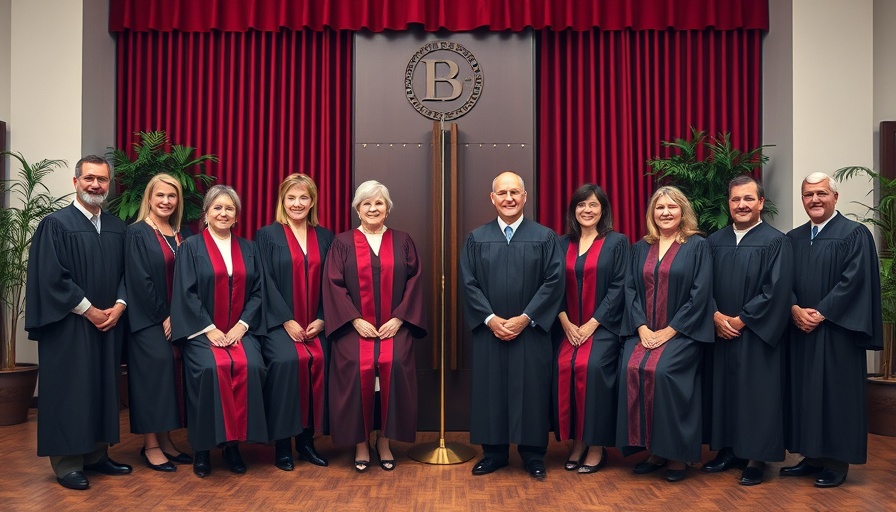
Understanding the Supreme Court's Role in Birthright Citizenship
The recent discussions surrounding the Supreme Court's review of birthright citizenship bring important constitutional principles to the forefront. Specifically, the case examines the longstanding interpretation of the 14th Amendment, which grants citizenship to all individuals born on U.S. soil. Advocates for limiting birthright citizenship argue that the current interpretation is too broad and contributes to illegitimate claims of citizenship, while opponents emphasize the historical and moral implications of restricting access to citizenship based on birthright. As this case progresses, its implications could reshape the landscape of citizenship in America dramatically.
House GOP Pushes Forward on Immigration Reform
In parallel, the House Republican leadership is looking to advance former President Trump’s proposed immigration reform, dubbed the "big, beautiful bill." This legislation aims to address various aspects of immigration policy, including border security and pathways to citizenship. Supporters of the bill argue that it promises to secure national interests while providing necessary reforms. However, critics warn that elements of the proposal could exacerbate divisions on immigration and undermine existing protections for undocumented immigrants. It is fundamental to analyze the potential short- and long-term consequences of such reforms on the nation's demographic and social fabric.
The Cultural Context of Birthright Citizenship
Birthright citizenship does not just touch upon legal rights; it resonates deeply within cultural narratives of inclusion and belonging in the United States. The ongoing debate reflects a broader struggle over identity and the nation’s values. For example, people who immigrated to the U.S. face contrasting sentiments, varying from welcoming to hostility, often depending on political rhetoric around issues of citizenship. Understanding this cultural context is vital for grasping why birthright citizenship remains a contentious topic today. The implications of this discussion span beyond the courthouse and into the communities affected.
Exploring the Future of Immigration Policies
The future of immigration policies looks increasingly uncertain as nationwide debates intensify. Predictions suggest that, if the Supreme Court rules to limit birthright citizenship, it could herald a wave of legal challenges and a re-invigoration of congressional dialogues on immigration. Alternatively, maintaining the current interpretation could encourage immigration advocates to pursue broader reforms aimed at comprehensive reform, including protections for undocumented individuals. Developing a clear understanding of these possibilities is essential for individuals and communities to engage in informed advocacy and understanding.
The Impact on Everyday Lives
For many individuals, the outcomes of these discussions may seem distant, but they hold significant implications for everyday lives. Families torn apart due to immigration policies, individuals seeking better futures, and communities welcoming new residents all are influenced profoundly by these issues. The ramifications of court decisions and legislative actions extend beyond the political realm and directly into the lives of real people navigating an often complex and daunting immigration system.
How You Can Stay Informed
Staying updated with the latest breaking news and understanding the evolving narratives around issues like birthright citizenship and immigration reform ensures informed discussions. Engaging with reputable news sources and following updates from various perspectives provide insight into the multifaceted implications these topics hold. Consider joining local community discussions or advocacy groups to better grasp how these national conversations manifest locally.
In conclusion, as the dialogues around birthright citizenship and immigration policy unfold, it becomes increasingly important to remain informed and engaged. Whether through news articles on national headlines or community discussions, the participation of each individual plays a vital role in shaping this critical issue.
 Add Element
Add Element  Add Row
Add Row 



 Add Row
Add Row  Add
Add 


Write A Comment